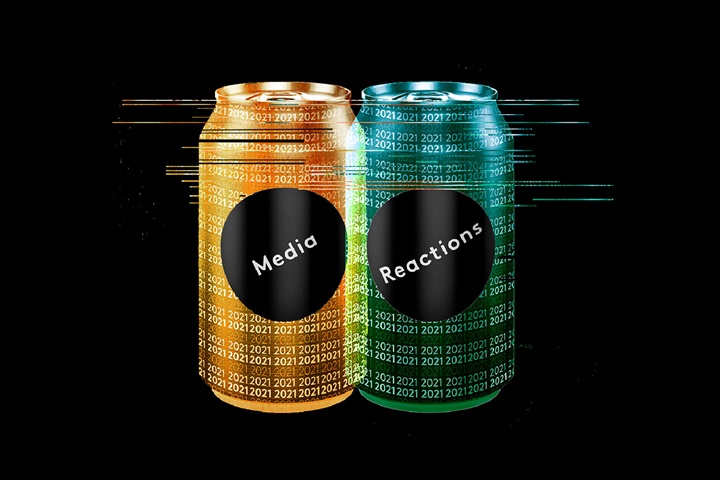Consumer exposure to online advertising has been steadily increasing over the years, and this was accelerated by the pandemic. Kantar’s Media Reactions 2021 study shows that claimed online advertising exposure has increased by 4% in the past year. The study looked at perceptions of over 290 media brands in 23 markets and shows the dominance of online brands such as Google and YouTube in terms of claimed usage.
With this digital explosion, the dilemma for marketers is that consumers are still generally much less positive about the ads they see on online channels. As digital media consumption and spend increase, so does the challenge of engaging audiences without irritation. We have observed the difference in attitudes in consumer perceptions of online and offline advertising since our first ad receptivity study in 2001, and this gap has stubbornly refused to close over two decades.
Media Reactions measures the ad equity of media channels and brands – showing the places where users most appreciate advertising and are least likely to view ads negatively. Of the 22 channels measured, the top 9 channels in our ad equity ranking are all offline, because channel users generally have more positive than negative opinions about these ad formats. Cinema ads top the ad equity ranking, and we also see very positive opinions of sponsored events, as well as print, Point of Sale and OOH ads. For online channels, only podcasts make the top 10, but users are more positive about influencer content and ads in ecommerce environments than they are about other online ad formats (number 1 and 2 online channels in terms of preference).
Can online channels improve?
While still behind offline formats in terms of consumer preference, the ad equity of some online channels is showing signs of improvement. Consumer opinion of some online channels such as in-game, video streaming and music streaming ads were particularly negative in 2020. These are among the channels most improved in 2021, increasing their ad equity by 10% or more. This trend is visible in many markets including the US, but it is not yet a uniform global trend; the consumer view of online channels is still fairly negative in other markets such as Germany and the UK.
The most improved online channels for ad equity among consumers

Globally, the polarisation in consumer attitudes mainly stems from the reputation of many online channels such as social media for excessive targeting (“ads which are targeted using my personal data in a way I don’t like”), and for some online channels, particularly online video and online gaming, being “too repetitive”. At the same time, social media story ads stand out as highly “fun and entertaining”, and ecommerce ads are appreciated because they are “relevant and useful”. In a similar vein, people see in-game ads as intrusive but also fun and entertaining. The positivity towards the online channels mainly comes from men and generations younger than Boomers.
Consumer perception of online and offline channels

Attitudes to ads in the premium digital media brand environments measured by the study are generally more positive than the online industry’s collective channel reputation. Digital ad platforms lead in 10 out of the 23 markets covered in the study. TikTok retains the number one ranking of global digital media brands for the second year running thanks to innovative, fun and entertaining ads. However, the success of digital media brands isn’t only due to entertainment. Different online brands stand out for different positive perceptions in different regions. In APAC and Europe, many markets’ most innovative ad platforms are digital, such as Pinterest in the UK. Ecommerce platforms Amazon and Mercado Libre make up the most relevant and useful ad platforms in the Americas, alongside Twitch in Canada. In South Africa, the most trustworthy media brand is Takealot.
How are marketers reacting?
The increasing popularity of online channels and platforms among consumers is also reflected among marketers. According to GroupM’s This Year, Next Year report from June 2021, digital advertising revenues (excluding search) grew 18% during 2020, while spend on most other media channels declined. Digital ad revenues are also on course to grow 27% in 2021 and strong growth is expected to continue into 2022. The Media Reactions 2021 marketers’ survey also shows that the vast majority of businesses plan to increase spend on online video, social media ads and influencer content in 2022. The media brands most likely to benefit are YouTube, TikTok and Instagram.
Digital media spend will increase for most marketers in 2022

The increasing importance of digital ad platforms is clear both from a consumer and marketer perspective. This is a great first step to a truly holistic media strategy where online channels are seen as equivalents of traditional ones. Marketers need to start planning for both sides of the equation in the face of digitisation – for example, radio still has greater reach but that same content could be targeted more precisely within podcasts. The future is one of integrated marketing, and it might already be here.
To find out more about Media Reactions 2021, the winning channels and brands in each market, and much more, watch the on demand webinar or download our complimentary booklet. And get in touch to find out about the in-depth global and country reports available for sale.


